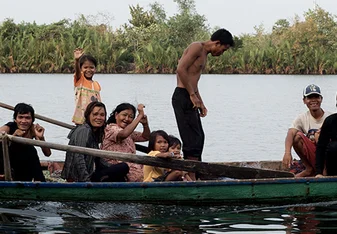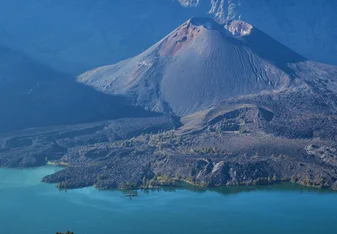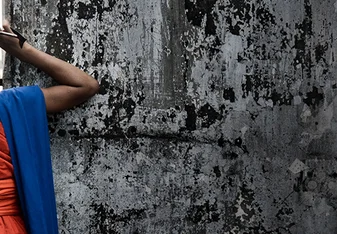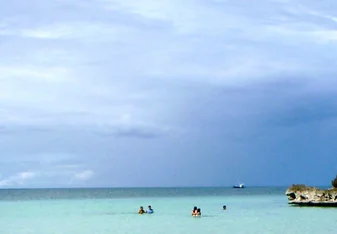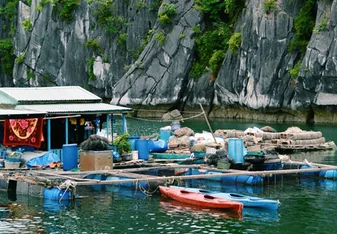Gap Year in Malaysia
Gap Year Programs in Malaysia
About
Malaysia, a multicultural hub of several ethnic groups and religions amazes foreign travelers with its culture. From cosmopolitan Kuala Lumpur, with the space ship like Petronas Towers glistening with silver sparkle at night, to some of the most beautiful little islands, and incredible landscape of the country’s mainland.
Malaysia will not stop to astound you with the world’s largest cave chamber in the Gunung Mulu National Park, the flower of Rafflesia (up to 1m in diameter) and the leaves of Alocasia Macrorhiza (the largest ever seen was over 3m long and nearly 2m wide) both found in the state of Sabah.
Make sure you give yourself enough time to wander around the country, try the fragrant foods, dip your toes in the turquoise waters and get blown away by the sophisticated feel of the country’s capital. You won’t regret it!
Photo Credit: Richelle Gamlam
Types of Programs
Volunteering
There are several volunteering options in Malaysia. Being such a diverse country you are sure to find the right project to suit your skills. There are many community and conservation projects, raising environmental awareness of the locals. Various English teaching placements are offered to those with an education background. Make sure you do your research and speak to fellow volunteers about their experiences before making your decision.
Traveling
Full of contrasts, Malaysia will not disappoint even the fussiest travelers. You’ll find anything you want here. Tropical islands will satisfy sun worshippers while Kuala Lumpur will be amazing for the city break lovers. With just under 66000km of highways you’ll be sure to whizz around in no time and in comfort much higher than in any other SE Asian country.
Adventure Travel
If you’re a bit of an adrenaline junkie, you have to try white water rafting on River Kampar in Gopeng. For those that love trekking, Mt Kinabalu will not disappoint. There’s also walking and hiking in the beautiful Cameron Highlands on the border of Pahang and Perak provinces. Make sure you visit one of many elephant sanctuaries, caves and go firefly watching if you’re a dedicated nature lover.
Planning Your Trip
Visas for Malaysia
Visitors from most countries receive a 14, 30 or a 90 day visa on arrival. There are no fees and no passport photographs are required. For more information visit the Malaysian Ministry of Foreign Affairs website.
Cost of Living in Malaysia:
- Even though you’ll find Malaysia a bit more expensive than other South East Asian countries, it is still relatively cheap to travel around for European and American visitors.
- A monthly budget of $1000 – 1200 is more than enough for a backpacker.
- The currency is Malaysian Ringgit and for $1 you will get around 3MYR.
- Traveling around Malaysia will also be more comfortable with nearly 66000km of highways, regular bus services (check with local travel agents or directly at bus stations as prices vary) and a wide range of domestic flights, you’ll be sure to find a way to move around that suits you best.
- For flights, make sure you check Malaysia Airlines, Air Asia, and Jet Star.
- Accommodation in Malaysia will vary depending on your location. You can find double rooms with air con and a bathroom at around 80 – 100MYR ($26-32). Hostels will be cheaper. Other destinations will be considerably cheaper, in Melacca for example a double air con room with shared bathroom will set you back around 45-50MYR ($14-16).
- You can get your food at various restaurants and cafes for about 15-20 MYR ($5-7) for two for breakfast, and 20-30 MYR ($7-9) for lunch for two. Food courts and market stalls serve local dishes at a smaller price. A bottle of water goes for around 2 MYR ~ $0.7. A coffee and a cake is around 20-30MYR ($7-9).
- All tourist attractions will be the most expensive part of your journey as usual. The revolving observation tower in Melacca will cost you 20MYR and to get up to the Sky Bridge at Petronas Tower will be 80 MYR ($26).
Culture and Etiquette in Malaysia:
- Malaysia is considered to be the multicultural hub of South East Asia. Even though over 50% of Malaysian population are white Malays, there are several other ethnic groups living in Malaysia, including Chinese, Indian and Portuguese. What comes with this multicultural society is several religions and customs each ethnic group observes.
- Even though multicultural, Malaysia is predominantly a Muslim country (over 60%) therefore you should dress respectfully, especially in rural areas, covering legs and shoulders.
- Always take your shoes off when visiting homes and temples and never eat with your left hand. Avoid touching others on their head and pointing with your feet and fore fingers as it is considered disrespectful. It is commonly accepted to use right thumb with four fingers folded to point at things/objects.
- Same sex relationships are a taboo in Malaysia as homosexuality is illegal. It is advised that same sex partners should avoid public displays of affection.
- Even though a large number of Malaysia’s Muslim population do not drink, alcohol is available in licensed venues, restaurants and shops.
- Just like in all other SE Asian countries, be prepared to master your bargaining skills, as haggling is pretty much a tradition in Malaysia. Remember to stay positive and smile, while letting the merchant quote the price first while you come back with a more reasonable counter offer.
- Toilet paper goes in the bins next to the toilet, not the toilet itself, as the drainage system is usually not suitable to take it in and will block. It’s always wise to carry spare tissues around, as some public toilets may not have any available.
Health & Safety
Health and Safety in Malaysia:
- Malaysia is a country of contrasts, just like many other South East Asian destinations. It is considerably more developed compared to Laos or Cambodia, but you can still see the clear combination of modern, urbanized world and a developing country.
- In terms of health care, Malaysia is practically malaria free, however, mosquito bite prevention is still recommended. Water is usually treated and safe to drink straight from the tap, so are ice drinks in restaurants and market stalls.
- In case of medical emergencies, public healthcare institutions are usually reliable and of a good standard. Private healthcare is also available, however much more expensive. Make sure you have a good travel insurance policy cover.
- In terms of personal safety and travel scams, they still happen in Malaysia, therefore be sure to check several options and seek fellow traveler recommendations. As in other SE Asian countries, taxi drivers usually refuse to use meters. Make sure you insist on using the meter and pay attention to the route to avoid being overcharged.
- As in any other tourist destinations, beware of pickpockets in big cities like Kuala Lumpur or Penang.
- Beware of Malaysia’s strict drug offense laws, as the death penalty is mandatory for anyone convicted of trafficking.
- Crimes such as vandalism, bribery, rape or overstaying your visa are usually punished with caning.


























